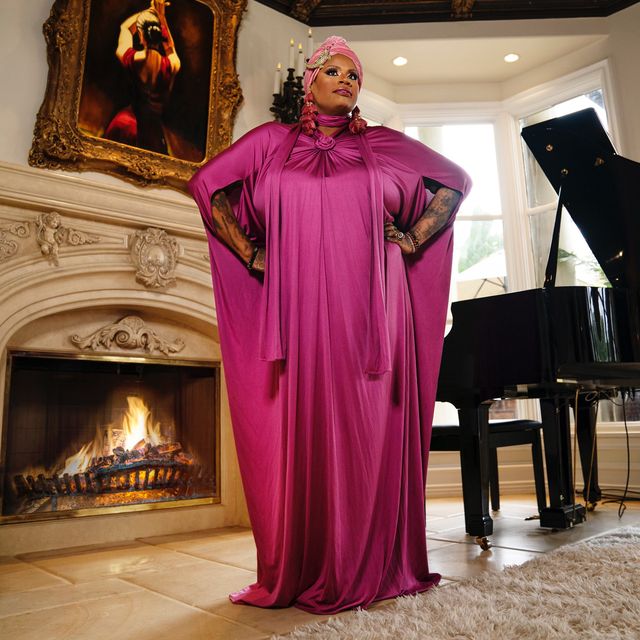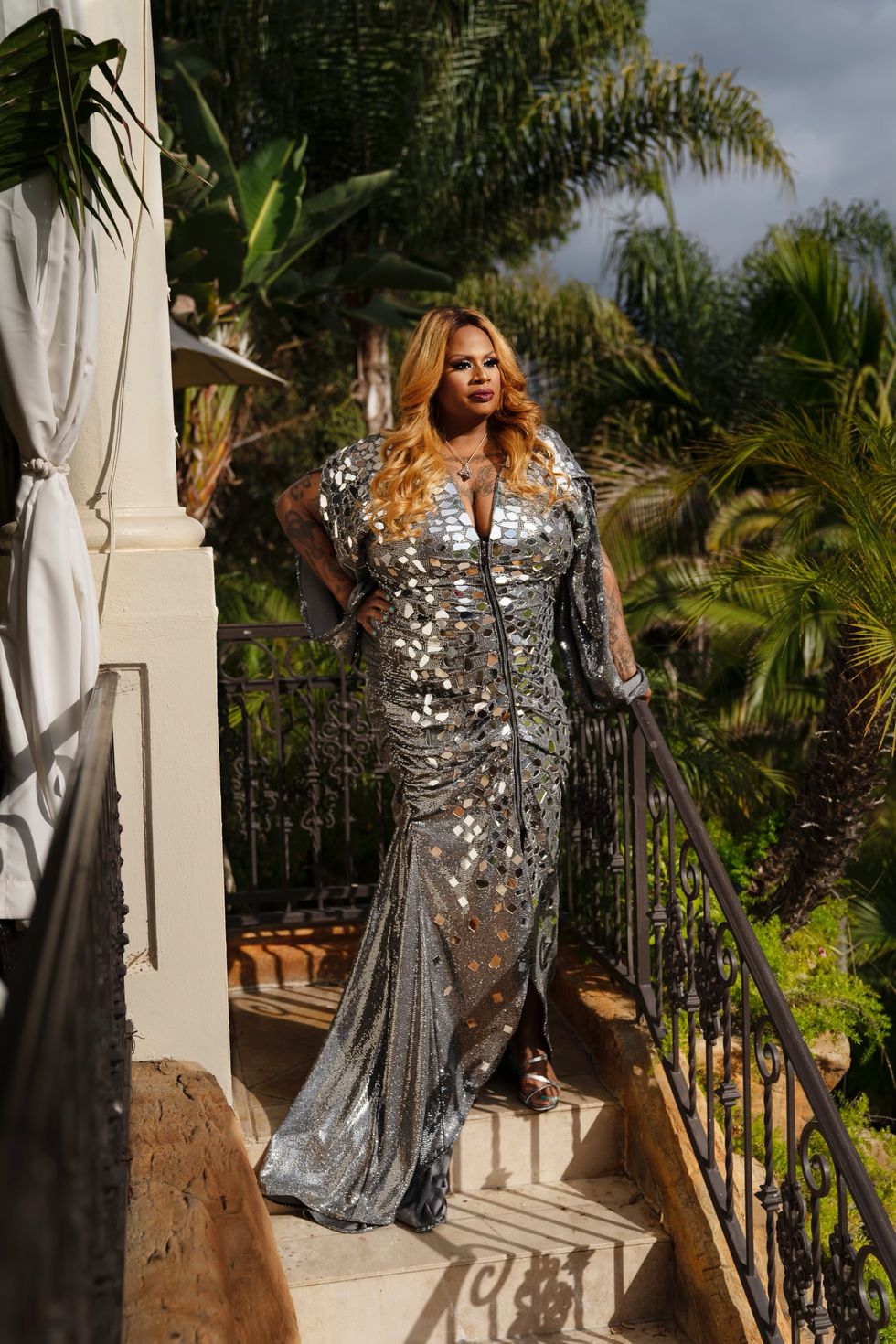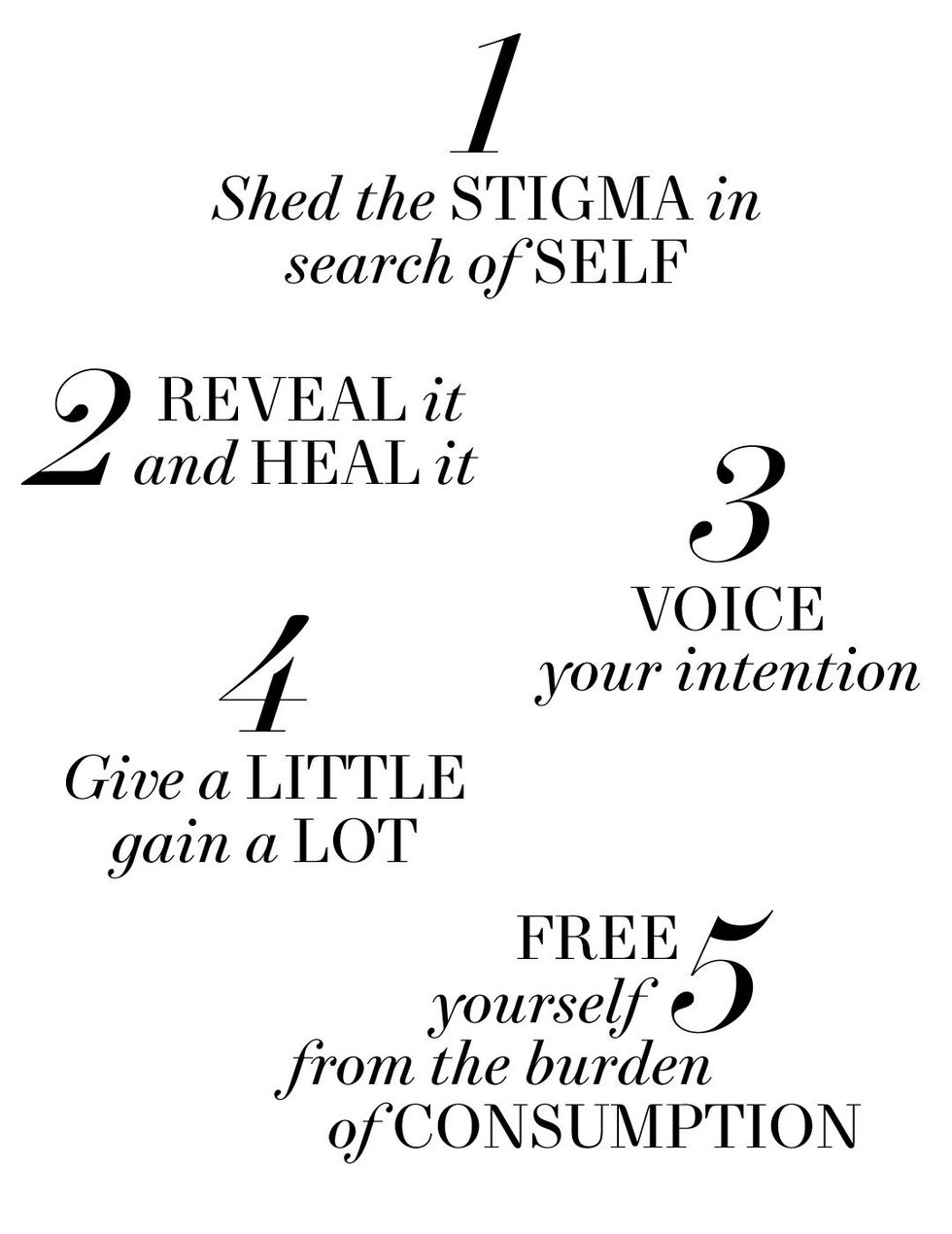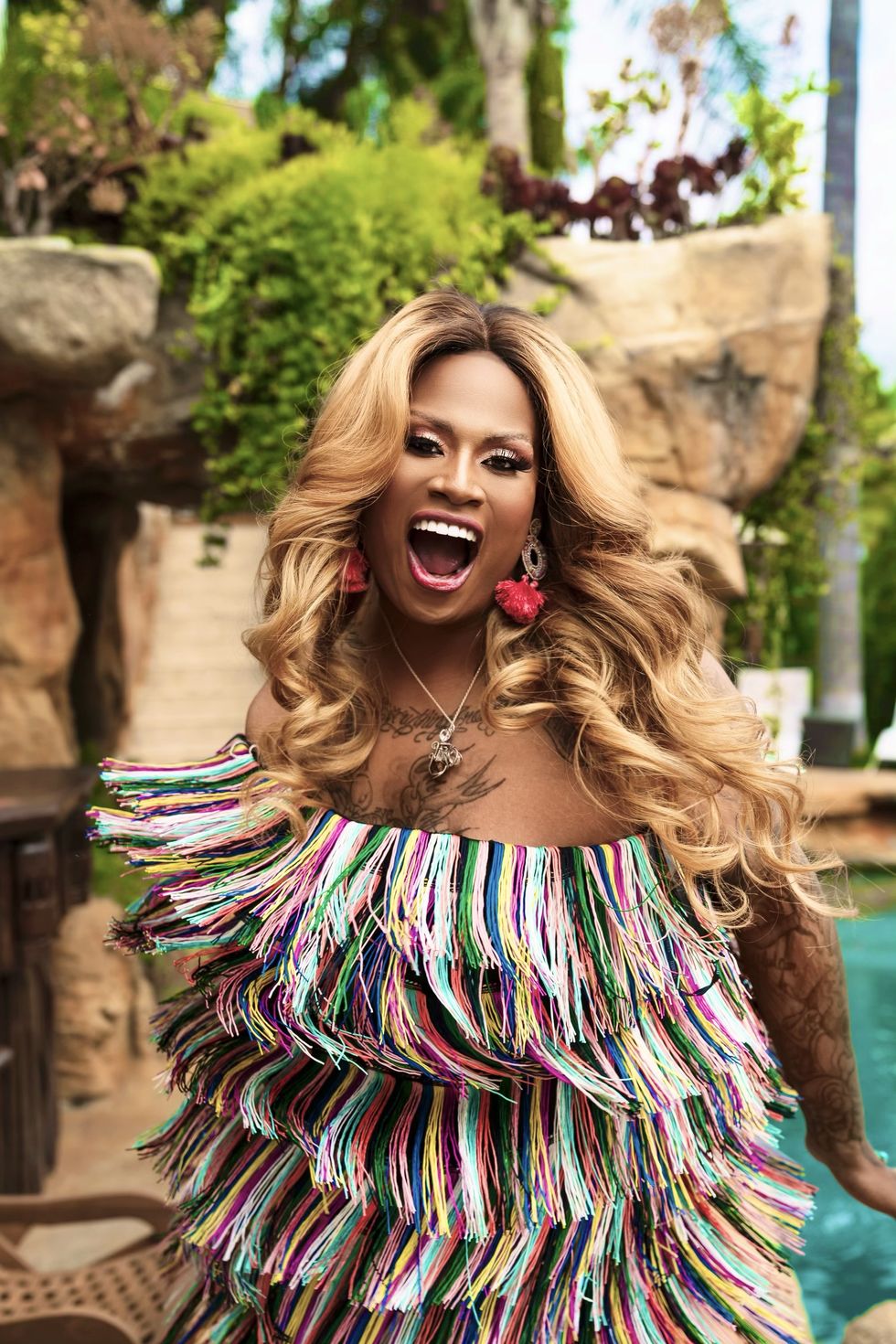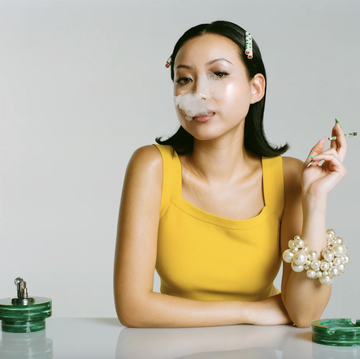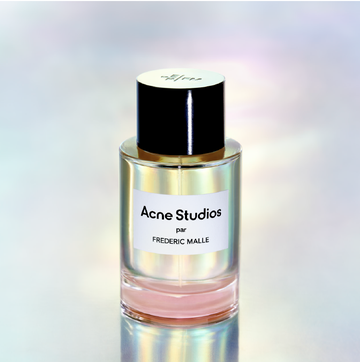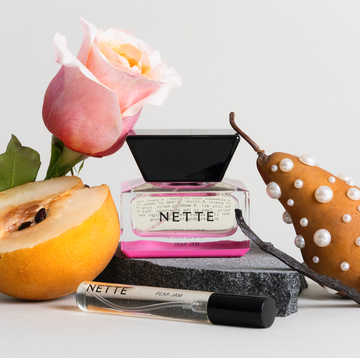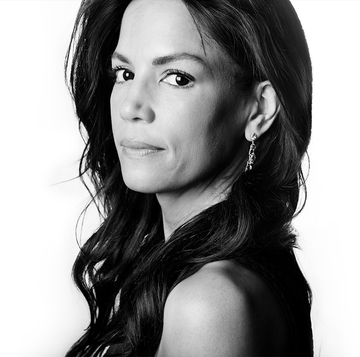It took me several years to unpack the fundamental principles of thriving while trans. When I transitioned back in 2004, there were virtually no movies, TV shows, books, or think pieces modeling the possibilities. Quite frankly, there still aren’t. The majority of the trans-centric content we consume is centered on our suffering, and our capacity to escape death is lauded the acme of accomplishment. Lean in so you can catch every single syllable of this: Survival is not the ceiling. Some of us have been out here surviving for so long that at this point, it’s muscle memory. The idea of static survival isn’t liberating—it’s limiting. Thriving, however, is at the very core of trans identity, despite any and all resistance to our desire to lead dignified lives.
Even at this very moment, the onslaught of anti-trans legislation sweeping through the nation is rooted in retaliation over recent victories. The trans community and our supporters brought the ceiling crashing down in the Supreme Court when we won federal protections in the workplace. We’ve obliterated multiple bathroom bills, reversed the trans military ban, witnessed the first trans woman secure a seat in a state Senate, blocked bills to limit access to health care, and additional triumphs are still trickling down the pipeline.
As we continue pushing back against violent attempts to impede our progress, it’s important for us to highlight our wins as often as we underscore our woes. If we center only the tragedy, trauma, and terror of the trans experience, we lose our connection to hope, the general public becomes desensitized to our plight, and the violence we endure becomes increasingly normalized. It’s also quite the contradiction to tell queer and trans youth to embrace their identities and aspire greatness, and that their lives get better, while inundating them with messaging solely suggesting they only get worse.
As someone whose identity overlaps with multiple marginalized groups, my ancestry runs deep, and so does the legacy of thriving against all odds. Throughout the years, I’ve repeatedly heard the saying, “My ancestors walked so that I could run.” Along my own journey toward liberation, I found myself tracing their footsteps; emulating their framework for healing and radical transformation. When it comes to thriving, I feel the decade that best understood the assignment was the 1970s. While the 1960s ushered in progressive new ideas via the civil rights movement, the ’70s birthed awakening, change, and revolution spanning several communities. People of color, women, and queer and trans folx radically latched on to joy and unapologetic flamboyance as an act of resistance. Oppression was always intended to shatter the soul from the inside out. Therefore, they chose jubilance as a tool for loosening the antiquated grip of social stagnation. Life had become a disco, and everyone was invited. Well, almost everyone. While the ’70s were a decade of empowerment for multiple movements, each still lacked cohesion.
Unfortunately, law professor and civil rights activist Kimberlé Crenshaw’s framework on intersectionality, which masterfully draws the connection between critical race and feminist theory, wouldn’t enter the chat until 1989. Though there were several movements thriving simultaneously in the ’70s, few of them understood the importance and impact of a cross-cultural coalition and its role in defending human rights on all fronts. Religious indoctrination and generational trauma within the Black community posed indifference toward queer liberation. And while Black women were the foot soldiers of the civil rights era, Black patriarchy treated them as footstools. The queer liberation movement couldn’t push past its racism, sexism, and transphobia, and the only women who second-wave feminism empowered were white and cisgender.
Meanwhile, trans activists Marsha P. Johnson and Sylvia Rivera in all of their bad-assed glory were still in the trenches fighting for them all. Despite each layer of their identities being at war with one another (placing them in the crossfire), the two women continued throwing down the gauntlet for racial justice, queer liberation, women’s empowerment, and immigrant rights. The duo were also fierce prison abolitionists and anti-rape activists, they helped combat police brutality, and they took care of homeless LGBTQ youth disowned by their families. The protagonist of your favorite action flick could NEVER. This is why we say, when Black trans women are liberated, ALL of us will be. When we thrive, so does each community our identity and experiences intersect with.
2021 signifies a golden era of absolute equality in which the fruits of liberation are blooming beyond the vines of victory. We find ourselves experiencing a paradigm shift similar to that of the 1970s, only this time Black trans women aren’t an afterthought—we’re the driving force. The glow of a burgeoning future is on the horizon, and if Black trans women are capable of flourishing, anyone can.
Below are five tenets of thriving that have shaped my personal evolution and helped me reach the apex of contentment.
SHED THE STIGMA IN SEARCH OF SELF
Before placing foot to pavement on our path to self-discovery, we must unsubscribe from bastardizing narratives meant to delegitimize and diminish our humanity and worth. At times, we may convince ourselves that a given narrative is true because of a chapter in our lives we aren’t necessarily proud of. You can’t draw conclusions on an entire book after reading the first sentence of the first chapter. So why should you define your core being by choices you’ve made under complex circumstances? The key concept to remember here is that you are not your worst mistake. Stop allowing others to place a period where the universe has inserted a comma. As a formerly homeless, meth-addicted, survival sex worker, I would have never fathomed that someday my struggles would become symbols of beauty, resilience, and transformation. The lessons we learn today become the lanyard of our legacy. Don’t allow others to stunt your growth with their unauthorized autobiographies and ill-informed takes on your truth. Embrace your role as director of your own destiny and build out the narrative you so desire. Don’t be afraid to unleash your main character energy and take up space in a society that makes you feel abnormal. Your existence isn’t an anomaly, but an ember of ethereality. Stand in your full glory and burn bright.
REVEAL IT AND HEAL IT
We aren’t responsible for the harm we’ve endured at the hands of others, but taking back our power means taking charge of our own healing. For years, I was terrified by the idea of unpacking my trauma. I didn’t have a safe place to lay my head at night, let alone a safe space to process pain without running the risk of re-traumatization. I’d convinced myself that disassociation and stoicism were proof of indomitability. If there were no emotions to process, there was no reason to go peeking into Pandora’s box. Untreated PTSD is a cognitive cataract that clouds our capacity to navigate survival—making us exponentially vulnerable to more harm. There is strength in vulnerability. Yet for most trans women, we conflate vulnerability with weakness, associate weakness with indefensibility, and connect indefensibility with death. There are, in fact, two types of death: bodily and spiritual. When it comes to preserving the soul, the only way we experience the fullness of life is when mental health becomes the nucleus of our well-being.
VOICE YOUR INTENTION
Equally important to redefining success for ourselves is an understanding of what drives us to go after it. In my early transition, success for a trans person was being hired at an LGBTQ+ nonprofit organization. I was ecstatic when I began working for an org serving unhoused queer youth, especially as someone who’d been formerly homeless. It was wonderful going to work as my authentic self, especially after being fired when I transitioned at my previous job. Though I loved working with the youth, my labor was exploited, there wasn’t much room for growth, I was constantly silenced, and I found myself merely one paycheck away from being in the same predicament as the demographic I served. What the community at large deemed success fell far from my definition of what it meant to thrive. The employment opportunities that followed my departure from the nonprofit industry were nothing short of amazing. I landed a job at a prominent public relations firm, did the red-carpet journalist thing, began contributing to several top-tier publications, and even became the first trans editor in chief of a national publication. Unfortunately, none of those big breaks were fulfilling, because I was measuring success by Los Angeles workforce standards—not my own.
Finally, I sat down and gave thought to what I truly wanted. That’s when it hit me: I wasn’t placing intention on what I wanted out of life, only what I wanted in a career. Somewhere along the way, I’d been conditioned to believe thriving was about my socioeconomic post in life and not my purpose. More than anything, I wanted to emancipate myself from capitalism. I never consented to the burden of consumption, nor did I agree to my productivity becoming a metric through which my worth should be measured. It feels silly to seek salvation from the system directly responsible for the suffering of my ancestors—and even my present being. Don’t get me wrong, I’m great at playing the game—I’m even the Monopoly champ of my family. That still doesn’t mean capitalistic ambition will ever quench my insatiable need for authentic relationships and alignment with my life’s purpose. Outside of economic and emotional security, my ultimate intention is to give and receive love. Even at 37 years old, deep down inside I’m still that cherubic-faced kid who wants to eat birthday cake with my friends and share my new toys—which leads into the next tenet.
GIVE A LITTLE, GAIN A LOT
Giving improves your quality of living. My relationship to prosperity evolved the moment I unsubscribed from scarcity-driven logic and offered myself up to the universe as a conduit from which blessings could flow into the lives of others. I’ve worked very hard and made many sacrifices, and I am finally bearing the fruits of my labor. This by far has been one of the most exciting chapters of my journey, because it has afforded me the opportunity to pay it forward by helping elevate my trans siblings. Trans women (especially those who’ve ever engaged in survival sex work) often fall prey to the politics of survival. Back in the “boulevard” days my survival was contingent upon whether a john wanted to sleep with me or the trans woman standing next to me. Even away from the shadows of the street corners and dark alleyways, the pervasive nature of tokenism in media creates the same tension. The idea that there can be only one of us in a space or even that we need to be famous before our lives matter sows seeds of division among us. At the end of the day, all we have is one another, and we must protect each other.
My dream is to build spaces throughout the United States where my trans siblings can exist without the threat of violence; where radical rest replaces resistance. If we trans women spend so much time fighting for our lives that we forget to live them, then we’ve essentially already lost them. We deserve bountiful lives, and the chance to experience unfettered freedom and upward mobility at peak vibration. Cis allyship is cool or whatever, but have you ever invested in another trans woman? It doesn’t necessarily have to be monetary; it could be sisterhood, solidarity, your shoulder—you name it. In 2021, trans women are coming for everything they said we couldn’t have. If we aren’t pouring back into one another, we aren’t serious about our collective liberation—I said what I said. Shift your mindset from scarcity to surplus and watch the universe show up and show out.
FREE YOURSELF FROM THE BURDEN OF CONSUMPTION
Consumption can be defined under various contexts. It could be used to describe pressure to participate in a capitalistic society, control over the content we consume across multiple media platforms, or the ways in which people consume trans lives. Because I’ve already mentioned consumption under capitalism under tenet number three, I’ll skip ahead to the other meanings. I remember when I was first being recognized in the media as a trans activist. I carried pride to be recognized as such, as well as an overwhelming weight of responsibility. In my mind, being a trans activist meant I needed to be the mouthpiece for every trans experience, fight every injustice that came down the pipeline, post about every single murder, and share every viral video of us being brutalized in public spaces. At one point, there were so many murders of Black trans women that my Instagram page looked like an obituary. Though it’s definitely important to speak to these realities, the burden was so heavy it chipped away at my mental health. I’d attached my full identity to trans advocacy and thought that if I didn’t continue churning out posts underscoring the impetus of our demise, I’d be deemed a failure to the cause. The only people in the trans community who ever made me feel that way were some of our non-Black trans siblings who still don’t understand how problematic it is to call on Black trans women to be attack dogs when it’s convenient for them—while remaining silent when we’re murdered.
Believe it or not, majority of the pressure came from cisgender people requesting trans folx to regurgitate our trauma for entertainment purposes—under the “guise of education.” Many of the people we believe to be allies are no more than spectators and blood sport enthusiasts—unknowns to even themselves. Want to know how you can discern who they are? Go to any of your social media accounts and compare their likes on your trauma porn posts to the posts of you immersed in joy. I’ll wait. Sure, people will miss a post here and there, and we all know how violent the algorithm can be. These particular individuals, however, who often follow us for educational purposes, consistently engage our suffering—never our serenity. Everyone who shows up to consume your fear isn’t necessarily committed to your freedom. I stopped publicly processing grief the moment I realized the consumption of trans pain is a macronutrient that strengthens the ligaments of cis supremacy. Even if you’ve found yourself in this toxic cycle, it’s okay to change course. You have the right to release yourself from old agreements that feel low frequency. Become better at budgeting your bandwidth and let go of interactions that don’t serve your higher state of being.
While these tenets are just a few that have aided me in my own personal development, I encourage you to reimagine what thriving could look and feel like for you. “Stayin’ Alive” may have been a top hit in 1978, but as a strategy for thriving in a modern world, it’s only the baseline. Radical gratitude, cross-cultural solidarity, and a strong sense of identity are the grounding elements that will keep us safe, sound, and centered.
Ashlee Marie Preston is an award-winning Media Personality, Cultural Commentator, Social Impact Strategist, Political Analyst, and Civil Rights Activist. She is also the founder of “You Are Essential,” an initiative that funds grassroots organizations serving vulnerable communities.
